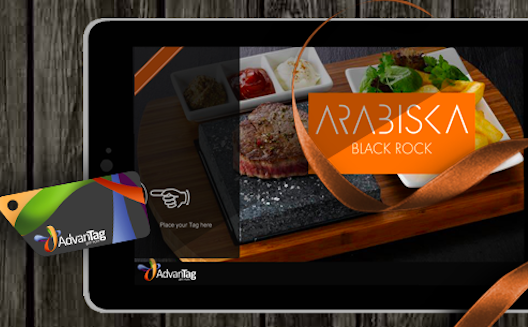Can rewards platforms save daily deals? A look at AdvanTag's expansion


It seems that the last thing that startups in customer loyalty want these days is to be called a loyalty program. Echoing UrbanBuz, a rewards platform that recently closed a Series A round, Dubai’s AdvanTag is also insisting on a new vocabulary. “We [don't] say that it’s a loyalty program,” says Troels Andersen, the company’s new COO. “It’s a loyalty tool, and a marketing tool. We call it the AdvanTag engine.”
AdvanTag, previously GenieTag in Canada, offers targeted
marketing campaigns, customized to enhance customer retention and
address specific pain points that businesses have when attracting
clients, explains Anderson. Whether it’s to address a slow Friday
night or to simply gather more data to better understand their
fans, clients can choose from a variety of features to reward
regulars.
Social media campaigns that provide a reward, like free ice cream
or the opportunity to skip the line, are the most popular, Andersen
says. AdvanTag’s in-store setup also allows customers to register
with an RFID card or check-in via their
iOS and
Android apps, and play games such as scratching a card or
spinning a wheel on a tablet, to win prizes.
These days, an instant reward system receives better feedback than
a traditional system that allow a customer to accumulate points
over time, Andersen says. His conclusion matches that of the
UrbanBuz team, which has built their platform to offer customers
rewards in person, tracked via e-mail address or phone number
rather than NFC.
Since closing $750,000 USD in early stage funding in late 2012,
from “friends, family, and fools,” and two angel investors in
Dubai, AdvanTag, which was founded by Adam Eldaba and Mo
Shahin, has signed up around 10 stores in Canada, where Eldaba
attended college and where Shahin is based, and 20 to 30 stores in
Dubai, where Eldaba lives.
The most famous of its clients is Dubai telecom company du, which,
during multiple social media campaigns this year, saw over 4,000
click-throughs on Facebook posts.
Another client, Dubai-based restaurant Arabiska, brought 107 new
customers on board in one evening and saw its posts go viral on
Facebook thanks to a raffle campaign. Advantag’s biggest Canadian
client, Wine Country Ontario, registered over 4,300 customers
during two events, with 14% opting to receive emails.
The company is working to build upon its momentum after
winning an Honorable Mention at the GIST Competition at the
Global Entrepreneurship Summit in Malaysia this year, and
presenting at the Web Summit in Dublin this year. While AdvanTag
is, at its core, a B2B business model, as Anderson sees it, it
doesn’t have a target audience more specific than “where people
repetitively come back.” Although, he says, the consumers that it
typically serves via its clients match those of Groupon: they’re
young, between 18-40, and live in Dubai or in the Toronto area.
When it comes to facing off against daily deals, which many small
business owners in Dubai perhaps associate with loyalty programs,
AdvanTag has taken the step to partner with its counterpart,
GrouponUAE, rather than treat it as competition.
In light of the fact that daily deals have
received criticism for failing to generate repeat traffic, this
partnership seems like a win-win: Groupon UAE can refer companies to a
loyalty program that will help them retain their new customers,
while AdvanTag gets access to Groupon UAE’s database and pipeline,
to target its customers and draw in new clients.
In the US, Groupon Inc. launched
its own loyalty program, called simply "Rewards," in
late 2012, in a bid to expand the business. Yet, it
paused the program this July, apparently to better incorporate
it with the company’s existing point-of-sale system and prepare it
for international roll-out. Five months later, the program is still
paused, perhaps an indication that partnerships with loyalty
programs will be more efficient for Groupon than truly pivoting its
model.
For now, AdvanTag is looking to continue growing at a manageable
pace, perhaps a wise tactic given the difficulties that daily deals
companies had when trying to make a regional land grab.
“When it comes to a startup like this, it's actually a bit
dangerous to grow too quickly," Andersen explains. "We need to have
as many product iterations as possible [in order] to optimize our
product, to have product that suits our customers needs, before
scaling. If we got 100 clients tomorrow, we wouldn't know to gather
all of their feedback,” Anderson explains.
After working very closely with their existing clients, AdvanTag
will, by Q1, like have a product that is "actually scalable; that's
when we'll start to look for [more] funding," Andersen says.
2014 may also see the company streamlining its offerings as it continues to test. When asked whether the company will standardize its offering, Andersen replies, “You could say that’s the original hypothesis that we’re testing: Do we need to be that flexible? Or can we come up with a product that is more standardized?” Andersen affirms. “We need to gather more feedback from the clients that we have."


